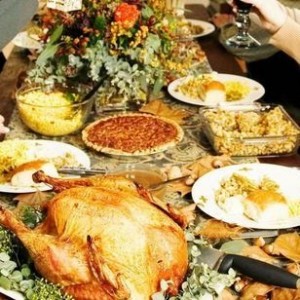Some make it a habit of reading the experiences of Urban Ministry through the lens of stereotypes, symbols and beliefs and its difficult if not impossible to attach other meanings because there are no other interpretations beyond the “knowledge” they carried with them. That knowledge would be “shadows cast on the wall” that prevent them from knowing the truth about urban ministry. They take the shadows as objective representations of reality. It’s time for us to help them confront their shadows so that they may know the truth about urban ministries.
Most times this is not an intentional act against another group but a lack of deep scriptural knowledge. I am not referring to memorization or reading of scripture, but an exegetical study to understand the linkages and meaning of treatment to and of others in relationship to treatment of self. The power behind Jesus commandment of loving your neighbor as yourself should flip the script on our day-to-day thinking. This goes beyond the idea of just helping someone in need. This view does not allow you to look at them as less than, separate, inferior or not deserving of all that you would do for yourself or your family.
It is antithetical to think that we would do more for others than we would for ourselves. We each see the world from our own self-interest first and then in service to others. But this view contradicts scripture. Let’s look at one of the most well intentioned concepts of service – mission trips. On the surface they seems totally the right, the Christian thing to do and a learning opportunity for young people. But from the side of those you choose to serve, it is as disrespectful as any action that one could engage.
I will use the word of two greatly respected figures, Martin L. King and Bishop Arthur M. Brazier, to unpack this concept in an attempt as was taught in Ephesians, to tear down the walls of separation in the church that worship the same God and has the hopes of a future in the same heaven.
King said – True altruism is more than the capacity to pity; it is the capacity to sympathize. Pity may represent little more that the impersonal concern which prompts the mailing of a check, but true sympathy is the personal concern, which demands the giving of one’s soul. Pity may arise from interest in an abstraction called humanity, but sympathy grows out of a concern for particular needy human being who lies at life’s roadside. Sympathy is fellow feeling for the person in need – his pain, agony, and burdens. Missionary efforts fail when they are based on pity, rather than true compassion. Instead of seeking to do something with people, we have too often sought only to do something for them. An express of pity, devoid of genuine sympathy, leads to a new form of paternalism, which no self-respecting person can accept.
Bishop Brazier said – Some in the church contribute money to support missionary hospitals and schools in foreign countries. They take trips to involve themselves in the total life of people with whom they are working for the sake of Christ. Why is it that some, while supporting total involvement abroad oppose total involvement at home? The New Testament sets out clearly a position of equality when it unequivocally states that none of the biological, ethical, social or psychological distinctions by which we compartmentalize men and make some inferior and some superior has any validity as far as their standing before God in Christ is concerned (cf. Col.3: 11). If this is the case then surely there can be no artificial distinction and barrier in our relationship with each other.
I write this out of love for my brothers and sisters so all races, creeds and religions. Those I serve with, beside and those yet to be in relationship. Truth is never uncalled for. There is no polish without friction and it is with men as someone has said about tea: if you wish to get its strength you must put it in hot water. So the real opportunity for those outside the urban community is that there is no meaning in a given situation until you relate your own experiences to it, regardless of what you might have been taught about it. Obtaining personal experience in meaningful relationship with other leaders in the urban communities plays a critical role in this process. It is through a lived experience of being with others that stereotypical perceptions can be transformed.
A general implication of the arguments presented is that, like any diversity related discourse, the choice, conceptualization and the practice in the diverging context not remain essentially a contextual matter.
Let’s talk about it. Hit me back with your comments, thoughts and questions.


